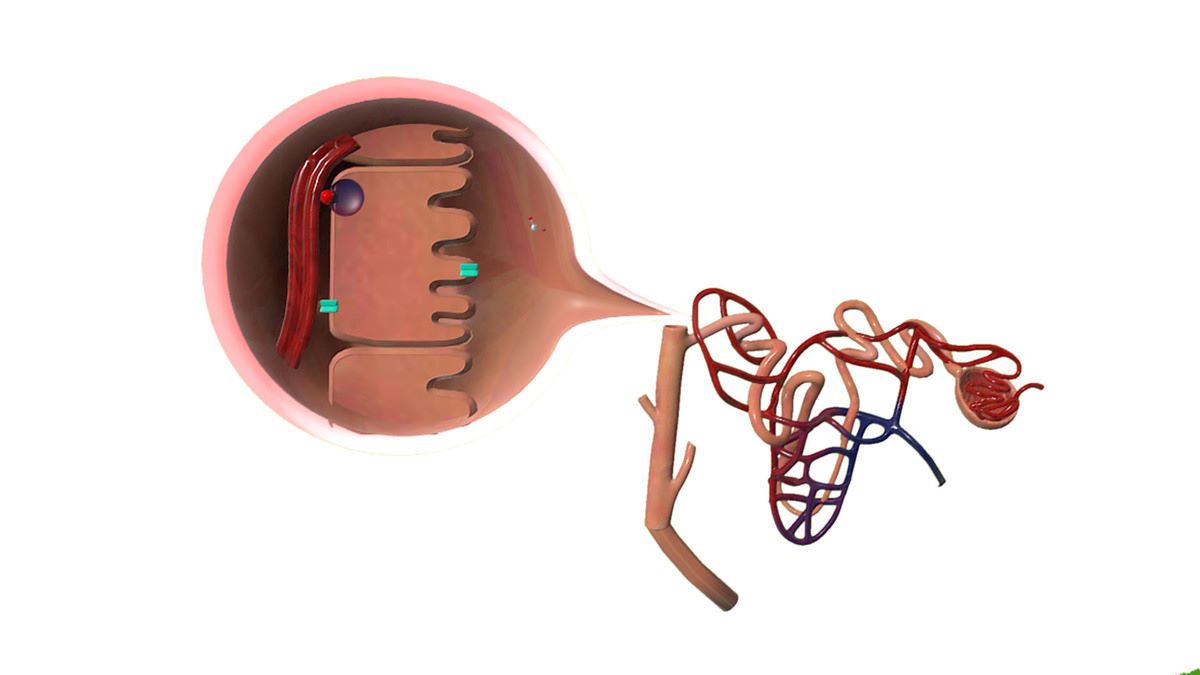
Antidiuretic hormone (ADH), also known as vasopressin, plays a crucial role in regulating water balance in the body. This hormone helps kidneys manage the amount of water conserved or excreted. When the body needs to retain water, ADH levels rise, prompting kidneys to reabsorb more water and produce less urine. Conversely, when hydration levels are adequate, ADH levels drop, allowing kidneys to release more water through urine. ADH also influences blood pressure by constricting blood vessels. Understanding how this hormone works can shed light on various health conditions like diabetes insipidus and hyponatremia. Let's dive into 20 fascinating facts about this essential hormone!
What is Antidiuretic Hormone (ADH)?
Antidiuretic hormone (ADH), also known as vasopressin, plays a crucial role in regulating water balance in the body. It helps the kidneys manage the amount of water in the body by controlling the concentration of urine.
-
ADH is produced in the hypothalamus. The hypothalamus, a small region in the brain, is responsible for producing ADH. It then gets stored and released by the pituitary gland.
-
ADH helps control blood pressure. By causing blood vessels to constrict, ADH helps increase blood pressure, ensuring that vital organs receive enough blood.
-
ADH release is triggered by dehydration. When the body is dehydrated, the concentration of solutes in the blood increases, prompting the release of ADH to conserve water.
How ADH Affects the Kidneys
The kidneys are the primary organs affected by ADH. This hormone influences how much water the kidneys reabsorb, impacting urine concentration and volume.
-
ADH increases water reabsorption in the kidneys. It makes the walls of the kidney tubules more permeable to water, allowing more water to be reabsorbed back into the bloodstream.
-
ADH reduces urine volume. By promoting water reabsorption, ADH decreases the volume of urine produced, helping to conserve water in the body.
-
ADH affects the collecting ducts. The hormone acts mainly on the collecting ducts of the kidneys, making them more permeable to water.
Disorders Related to ADH
Imbalances in ADH levels can lead to various health issues. Understanding these disorders can help in managing symptoms and seeking appropriate treatment.
-
Diabetes insipidus is linked to ADH deficiency. This condition results in excessive urination and thirst due to insufficient ADH production or response.
-
Syndrome of inappropriate ADH secretion (SIADH) involves excessive ADH. SIADH causes the body to retain too much water, leading to low sodium levels and potential complications.
-
ADH levels can be affected by head injuries. Trauma to the brain can disrupt the production or release of ADH, leading to imbalances.
Factors Influencing ADH Release
Several factors can influence the release of ADH, impacting its effectiveness in regulating water balance.
-
Alcohol inhibits ADH release. Consuming alcohol can reduce ADH levels, leading to increased urine production and dehydration.
-
Stress can increase ADH levels. Physical or emotional stress can trigger the release of ADH, as the body attempts to conserve water during challenging times.
-
Certain medications affect ADH. Drugs like diuretics and some antidepressants can alter ADH levels, impacting water balance.
ADH and Its Role in Homeostasis
Maintaining homeostasis is vital for overall health, and ADH plays a significant part in this process by regulating water balance and blood pressure.
-
ADH helps maintain blood volume. By conserving water, ADH ensures that blood volume remains sufficient to support bodily functions.
-
ADH works with other hormones. It interacts with hormones like aldosterone to regulate water and electrolyte balance.
-
ADH is part of the body's feedback system. The release of ADH is regulated by a feedback loop involving blood osmolality and volume.
Interesting Facts About ADH
Here are some intriguing tidbits about ADH that highlight its importance and complexity.
-
ADH has a short half-life. The hormone is rapidly broken down in the body, with a half-life of about 15-20 minutes.
-
ADH is also known as vasopressin. The name vasopressin reflects its ability to constrict blood vessels and raise blood pressure.
-
ADH can be synthetically produced. Synthetic versions of ADH, like desmopressin, are used to treat conditions like diabetes insipidus.
-
ADH levels vary throughout the day. The hormone's release follows a circadian rhythm, with higher levels at night to reduce urine production during sleep.
-
ADH plays a role in social behavior. Research suggests that ADH may influence social bonding and behavior in humans and animals.
The Final Word on ADH
Antidiuretic hormone (ADH) plays a crucial role in maintaining the body's water balance. It helps kidneys manage the amount of water conserved, ensuring hydration levels stay optimal. ADH also impacts blood pressure by controlling the volume of water in the bloodstream. When ADH levels are off, conditions like diabetes insipidus or SIADH can arise, leading to serious health issues. Understanding how this hormone works can help in recognizing symptoms of imbalance early.
ADH's influence extends beyond just water retention. It affects social behaviors and stress responses, showing how interconnected our bodily functions are. Keeping an eye on hydration and being aware of any unusual changes in urination or thirst can be key indicators of ADH levels. Knowledge about ADH empowers individuals to take proactive steps in maintaining their health. Stay informed, stay hydrated, and keep your body in balance.
Was this page helpful?
Our commitment to delivering trustworthy and engaging content is at the heart of what we do. Each fact on our site is contributed by real users like you, bringing a wealth of diverse insights and information. To ensure the highest standards of accuracy and reliability, our dedicated editors meticulously review each submission. This process guarantees that the facts we share are not only fascinating but also credible. Trust in our commitment to quality and authenticity as you explore and learn with us.


